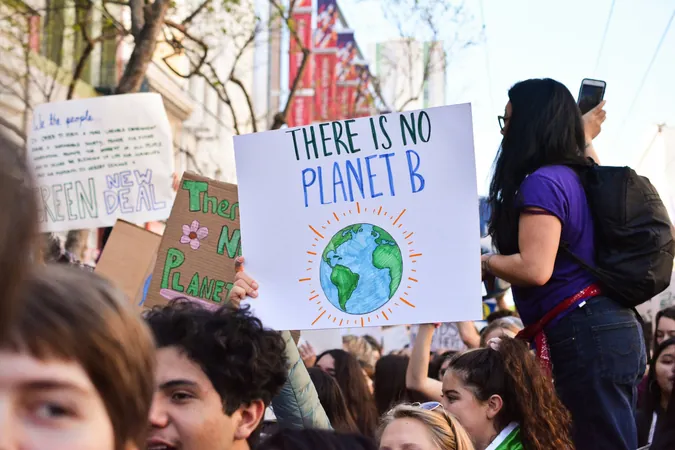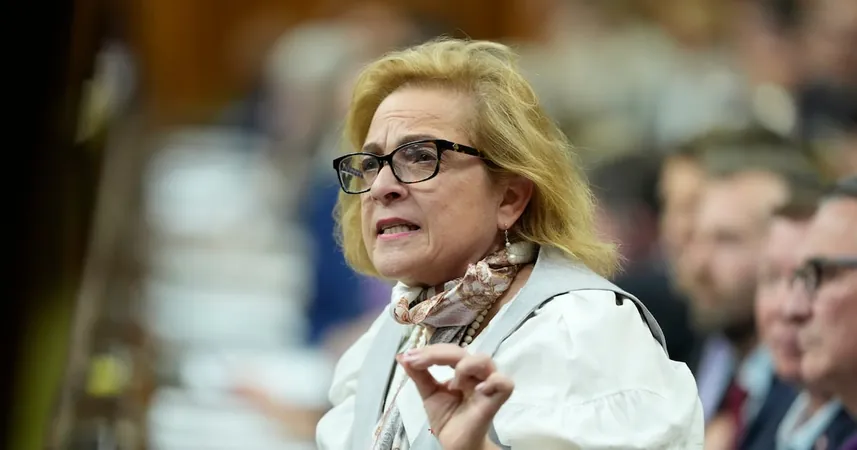
Public Trust: The Key to Unlocking Effective Climate Policy, Researchers Warn
2025-05-27
Author: Sophie
In the battle against climate change, a stark warning has emerged: without the trust of the public, effective climate policies are simply unattainable. Researchers from Radboud University stress that while governments focus heavily on technological innovations and economic factors, they neglect the crucial voices of citizens, risking a loss of public support at a pivotal moment in the climate dialogue.
Vincent de Gooyert, a sociologist and the lead author of a study published in *Earth System Governance*, highlights the dilemma surrounding carbon capture and storage (CCS) technology. He notes, "Despite its importance for meeting climate targets, CCS is struggling to gain traction. The industry demands government funding, while politicians cite a lack of public backing, and citizens expect businesses to take the lead. This creates a frustrating cycle of inaction."
The Market Value Dilemma
De Gooyert emphasizes that the ongoing climate discourse is often limited to a techno-economic lens, where solutions are expected to generate immediate market value. "This mentality discourages innovation in vital technologies like CCS, which do not have direct market worth. To advance such policies, you need public support, or else you face significant opposition," he warns.
Collaborating with fellow researchers Senni Määttä, Sandrino Smeets, and Heleen de Coninck, De Gooyert's findings draw on extensive interactions with stakeholders across Europe—governments, businesses, and citizens in countries like Finland, Sweden, Spain, and Belgium.
Building Trust Through Dialogue
A recurring theme in their research is the necessity for mutual trust between policymakers and the public. De Gooyert argues, "Many believe that simply explaining policies will naturally garner support, but this one-sided communication often backfires. It can lead to a perception that policymakers are dismissive and arrogant, dictating what’s best for everyone."
To bridge this gap, the researchers advocate for the establishment of independent scientific advisory councils and citizens' councils. "These forums should empower citizens to form informed opinions and embrace the complexity of climate issues. Transparency and honest discussions about difficult choices are essential to engage the public effectively," De Gooyert concludes.









 Brasil (PT)
Brasil (PT)
 Canada (EN)
Canada (EN)
 Chile (ES)
Chile (ES)
 Česko (CS)
Česko (CS)
 대한민국 (KO)
대한민국 (KO)
 España (ES)
España (ES)
 France (FR)
France (FR)
 Hong Kong (EN)
Hong Kong (EN)
 Italia (IT)
Italia (IT)
 日本 (JA)
日本 (JA)
 Magyarország (HU)
Magyarország (HU)
 Norge (NO)
Norge (NO)
 Polska (PL)
Polska (PL)
 Schweiz (DE)
Schweiz (DE)
 Singapore (EN)
Singapore (EN)
 Sverige (SV)
Sverige (SV)
 Suomi (FI)
Suomi (FI)
 Türkiye (TR)
Türkiye (TR)
 الإمارات العربية المتحدة (AR)
الإمارات العربية المتحدة (AR)